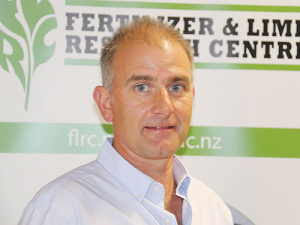Compliance means not only meeting the requirements of the regulator, but also the expectations of society.
This was a key theme of the annual Fertiliser and Lime Research Centre workshop at Massey University, Palmerston North, last week.
About 250 attendees representing CRIs, universities, central and local government and consultants attended the 32nd, three-day workshop. Speakers came from Ireland, Denmark and Australia.
The centre’s acting director, Professor Chris Anderson, says the workshop has long looked at nutrients and their management which, with compliance, is now critical.
He says compliance must be seen as farmers meeting the requirements of a regulator and also meeting society’s expectations.
“We are seeing more and more discussion about water quality. People want to know that their water is safe to swim in and they are concerned about food quality,” he told Rural News.
“So the FLRC workshop is a platform to look at the science and the policy – track how we are going, look at the current trends and [look at] finding a pathway forward.”
Anderson says agriculture and horticulture are crucial to NZ’s economy, but their impact on the environment is scrutinised more than ever before. Primary producers are increasingly challenged to comply with social expectations for “healthy food, healthy environment”.
“Regional councils are working on regulations guided by science, which target the balance between production and environmental protection,” he says.
Anderson believes Massey University is making a “significant contribution” to finding quality science solutions to the problems. They are looking at making farm systems more efficient with feed and getting the most from nutrient inputs.
“Good science is what Massey is strong in.”
Massey is making a point of engaging with farmers in some science work because farmers have the task of implementing policy.
“Farmers are doing a good job and we should celebrate this.”
They want to do a good job because they are concerned about having a clean environment. This underpins their goal of healthy food and healthy animals.
“So farmers are listening, watching and having input and providing feedback to us to make sure we are on the right track,” he says.



















